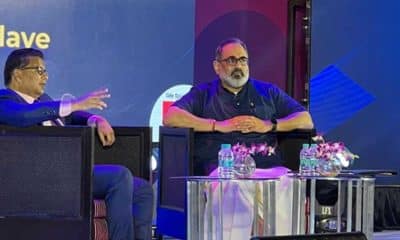News
Are startups in India pained by corruption and bureaucratic inefficiencies of Startup India?
A survey by LocalCircles, a community social media platform, says that over 50% of startups in India consider corruption and bureaucratic inefficiencies as the biggest roadblocks in 2018.
The Indian startup scene received a major boost when PM Narendra Modi announced the Startup India campaign in January of 2016. While the government has placed several pro-startup schemes to fan it further and startups in India have sprouted all around the country since, corruption, taxation and levies are still an issue Indian entrepreneurs need to deal with that maybe stifling further growth.
A survey by LocalCircles, a community social media platform, says that over 50% of startups in India consider corruption and bureaucratic inefficiencies as the biggest roadblocks in 2018. LocalCircles conducted the survey on nine parameters with over 33,000 startups and entrepreneurs across India to gauge how the Startup India mission fared and the challenges they are met with in building successful startups in India.
“After the highs of 2015 and the slow 2016, 2017 has been even slower for startups with a lot of them facing issues with raising funds and some of them even shutting shop,” LocalCircles said. They further added that with GES-2017, the Indian government is trying to give a push to Indian startups and entrepreneurs and is also reportedly reviewing the tax regimes in place for startups. While the aim is to attract more entrepreneurs, startups in India and SMEs are facing on-ground challenges.
As per reports, only 20% of the startups surveyed said the Startup India mission was of benefit to them. Many others quipped that entrepreneurs were forced to dedicate a significant amount of time on tax and compliance related matters. This was caused due to frequent tax notices due to funds being raised and changing valuations.
Despite all schemes and policies put in place for Indian startups, ventures like Flipkart, Grofers and InMobi have registered their offices in Singapore and not India. This not amounts to less taxes but also less time wasted on sorting compliance issues along with better access to funding opportunities.
All the surveyed startups have demanded that Google, Facebook, Twitter and other platforms whose digital advertising services are used should bill Indian companies from their Indian office in order to prevent dual taxation – as a mandate. As of now, startups in India are required to pay a 6% equalisation levy on the invoice value since the billing companies are not registered in India.
Some Indian startups have also asked to be exempted from GST under GST reverse charge on foreign services. Tech startups in India that procure services like hosting, database retrieval, pay per use services from major global companies have to pay a GST of 18% under reverse GST. However, the startup would not be subjected to such high taxes if they are registered in Singapore. This accounts for a significant amount, especially for pre-revenue startups relying on small investments or founder savings. Only around 31% of the startups said that GST has had a positive effect on their business.
However, 78% of the surveyed entrepreneurs said they are expecting their businesses to grow in 2018. A fair amount also said that their respective state governments have made doing business easier compared to the previous year and have made rules for starting up easier.












































